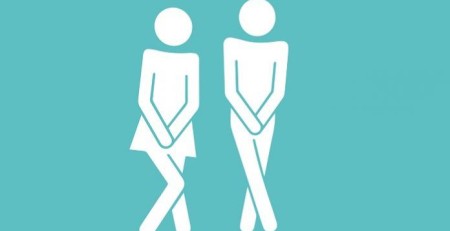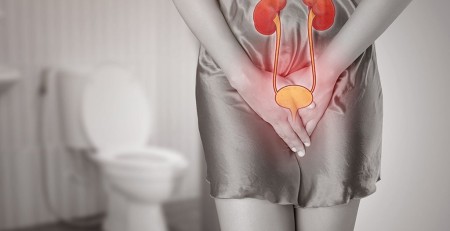Low Urinary Infection In Women
Urinary infection may be low (bladder infection = cystitis) or high (kidney infection = pyelonephritis). This text refers to low urinary infections.
How does urinary infection arise?
Cystitis in women is extremely common because its urethra (channel that connects the bladder to the outside) is shorter and is closer to the anus than the man’s urethra. This means that it is easier for bacteria to enter the urinary system and cause infections. Cystitis is more common in sexually active women, pregnant, after surgeries (algaliation) and postmenopausal. The infection begins with colonization of the entrance of the vagina by bacteria coming from the intestine (rectum). These bacteria rise through the urethra and reach the bladder where they multiply and cause infection.
What are the risk factors for cystitis?
Poor hygiene (clean the vagina from back to front), recent sexual intercourse, the use of spermicide-coated condoms. Diseases such as diabetes and urinary tract problems can also increase the risk of cystitis.
What are the most common infection agents?
The
bacterium Escherichia coli
is the most frequent agent of cystitis (75-95% of cases). Other agents: Enterobacteriaceae (such as Klebsiella pneumoniae and Proteus mirabilis), Staphylococcus saprophyticus, Pseudomonas, Enterococci.
What are the symptoms and signs of urinary infection?
Ardor when urinating, need to urinate frequently, urinary urgency and pain in the bottom of the belly. Sometimes urine can contain blood. In the elderly, the infection may be manifested by changes in mental status and general malaise. Although cloudy and smelly urine may be related to the presence of bacteria in the urine, it cannot be considered as a sign of infection if the patient has no other complaints. This is because the color and odor of urine are influenced by the ingestion of some foods, dehydration and other non-infectious factors.
In the presence of symptoms should be consulted the family doctor, gynecologist or urologist. Do not take antibiotics you have at home or recommended by people nearby.
Special cases
Pregnant women and kidney transplant patients have a different orientation.
Patients with urological problems (such as kidney stones, obstructions, stents, etc.), immune system problems (neutropenia or advanced HIV infection), or poorly controlled diabetes have a higher risk of low urinary infection progressing to high urinary infection.
What can I do to prevent urinary infection?
- Maintain good hygiene from the intimate area (always clean from front to back after going to the toilet; clean your vagina daily, but not too often or overrub; overcleaning can damage the skin. Bacteria proliferate more easily on injured skin); avoid applying irritating substances such as fragrant bath oils and vaginal deodorant;
- Urinate frequently (normal 4 to 7 times a day);
- Maintain an adequate intake of water (8 cups/day);
- Ingestion of juice or dietary supplements of red cranberry (cranberry), D-Mannose and Propolis and incite bacterial growth;
- Care in sexual relations: avoid sex “from behind” (anal penetration); use lubricants during intercourse – this will decrease irritation of the urethra; urinate before and as soon as possible after sexual intercourse;
- Wear cotton underwear and loose clothing to ventilate the vagina and keep it dry;
- If diabetic, keep your blood sugar well controlled.
What can happen if the infection is not treated?
Low urinary infection can evolve beyond the bladder and lead to pyelonephritis (symptoms are: low back pain, fever, chills of cold, general malaise, nausea and vomiting) and requires different treatment.
References:
https://www.uptodate.com/contents/acute-simple-cystitis-in-women?csi=08bc5b83-44d5-42e7-b2b1-2c9e78b196f7&source=contentShare accessed on 04.28.2021
https://www.yourpelvicfloor.org/media/urinary-tract-infection-portuguese.pdf accessed on 04.28.2021
Dra. Alexandra Henriques Médica Assistente Hospitalar Graduada de Ginecologia e Obstetrícia Unidade de Uroginecologia | Departamento de Obstetrícia, Ginecologia e Medicina da Reprodução Assistente convidada de Ginecologia da Faculdade de Medicina da Universidade de Lisboa http://www.chln.min-saude.pt









